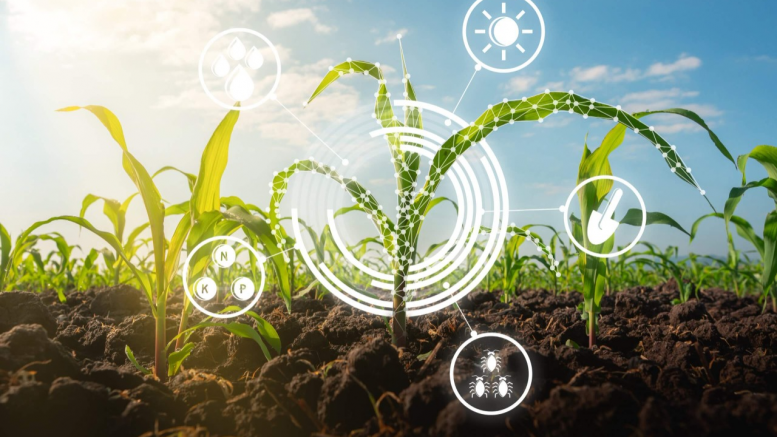“…we have seen growth and maturation of the innovation ecosystem, with solutions tested and validated inside and outside the farm, creating value for farmers and other stakeholders in the chain.”
José Augusto Tomé is the CEO and co-founder of the AgTech Garage hub, a partner of PwC Brasil, as well as one of the founders of the Vale do Piracicaba movement (AgTech Valley).
Tomé is a chemical engineer from the State University of Campinas. He was considered one of the 100 most influential people in Brazilian agribusiness by the Dinheiro Rural magazine.
In November 2022, PwC, a multinational that provides professional services as a consultant and auditor, announced the acquisition of AgTech Garage.

José Augusto Tomé, CEO and co-founder of the AgTech Garage hub
AgriBrasilis – What is AgTech Garage and who are its partners? How do those partnerships work and what are their objectives?
José Tomé – AgTech Garage is the main agribusiness innovation hub in Latin America, headquartered in Piracicaba, State of São Paulo, known as the “Silicon Valley of agribusiness”. Recently, AgTech Garage joined the PwC network, a global giant in professional services.
AgTech Garage customers, considered as partners, are large companies, national and multinational, leaders in their segments, and together represent the entire agribusiness value chain, from the farms to the consumer’s table.
We support the companies through different activities, such as open innovation programs, technology challenges and events that relate to the entrepreneurship ecosystem. The objective is for companies to adopt the best innovation practices and be able to create new products and services faster, increasing efficiency and contributing to a more inclusive, competitive, and sustainable agribusiness.
AgriBrasilis – What is the size and market potential of AgTechs in Brazil?
José Tomé – The last edition of Radar AgTech Brasil identified 1,703 agtechs in the country. The survey, carried out by Embrapa, SP Ventures and Homo Ludens, pointed out that 242 (14.2% of the total) startups operate before the farm, 705 (41.4%) inside the farm and another 756 (44%) after the farm.
According to data from AgFunder, cited by Radar AgTech Brasil, the main investments have been destined to agfintechs, startups of biological inputs, marketplaces and climatetechs. Those raised US$ 1.3 billion in Brazil in 2021. This value places Brazil as the 6th country to attract more capital to ag&food techs in the world. But there is still room to grow, given Brazil’s importance to global food production.
However, I want to highlight that agribusiness demands solutions that go far beyond those offered by agtechs. There is also a lot of opportunity for edtechs, logtechs, fintechs, foodtechs.
The market potential for startups in the agricultural sector goes beyond the agricultural GDP. We are an example: many of our partners are part of other sectors of the economy, such as energy, banking, and technology.
AgriBrasilis – In your opinion, why does Brazil still not have a “unicorn” AgTech? What would the ideal AgTech look like from an investor’s point of view?
José Tomé – It is a matter of time before Brazil has a unicorn agtech. Either way, this shouldn’t be the only metric of market success.
In recent years, we have seen growth and maturation of the innovation ecosystem, with solutions tested and validated inside and outside the farm, creating value for farmers and other stakeholders in the chain.
Investors today are looking for scalable, but also sustainable, businesses. And there is no lack of examples of agtechs that are in the market scaling their businesses with varying growing rates, with financial health, with the customer at the center, with corporate governance and well-built partnerships in their community. All these can also be considered indicators of the success of a startup.
AgriBrasilis – What does it mean to say that agriculture has a longer cycle of innovation and development? Why does the sector demand greater specialization from investors?
José Tomé – Unlike softwares, for example, that can undergo daily tests and generate short-term learning for the entrepreneur, agribusiness in many cases follows the cycle of agricultural crops. A product for soybean, therefore, has a window of three and a half months to be tested. If in the middle of the road something does not go as expected, as is quite common, the entrepreneur must wait for the next agricultural season to do another test.
In addition to the seasonal issue, agribusiness is an open-air industry, strongly influenced by the weather, and produces, in large part, commodities, the price of which fluctuates according to the laws of supply and demand. Agricultural investors are aware of these particularities and the enormous opportunities that the sector offers. This knowledge of the market allows for more assertive and conscious decisions about investments.
We are still noticing the diversification of the venture capital industry. We follow the structuring of many corporate venture capitals (CVCs), for example, and those are more strategic than financial. Many other investor profiles are also consolidating, such as large farming groups that invest directly in startups; groups of specialized executive angel investors, not to mention crowdfunding. Now is the time to diversify.
AgriBrasilis – What changes with the acquisition of AgTech Garage by PwC?
José Tomé – Nothing changes in the relationship with startups, corporations, or any other agent in the sector. In fact, as part of the PwC network, the AgTech Garage becomes more robust and can accelerate growth and generate more value by connecting with more complete solutions for companies and entrepreneurs, and consequently for the market as well.
READ MORE:

